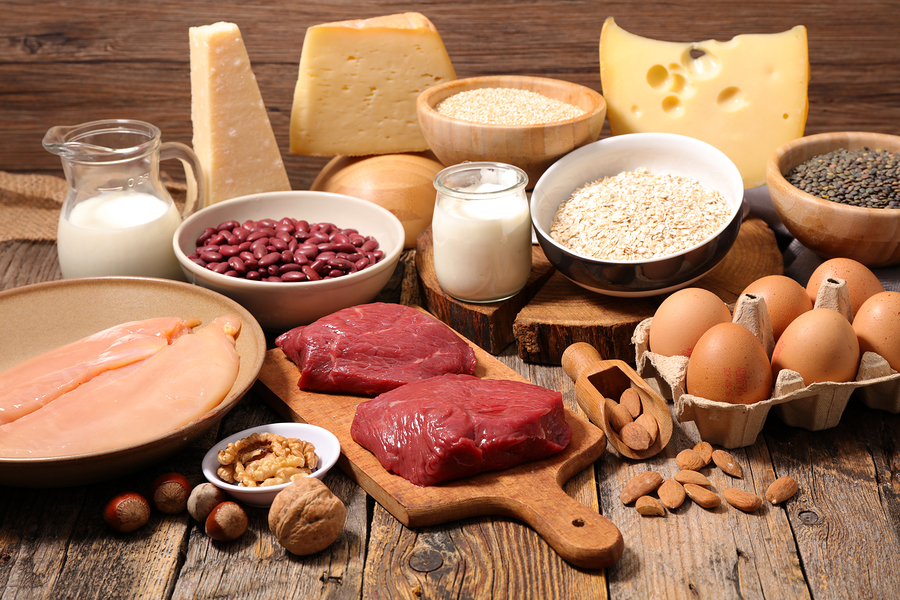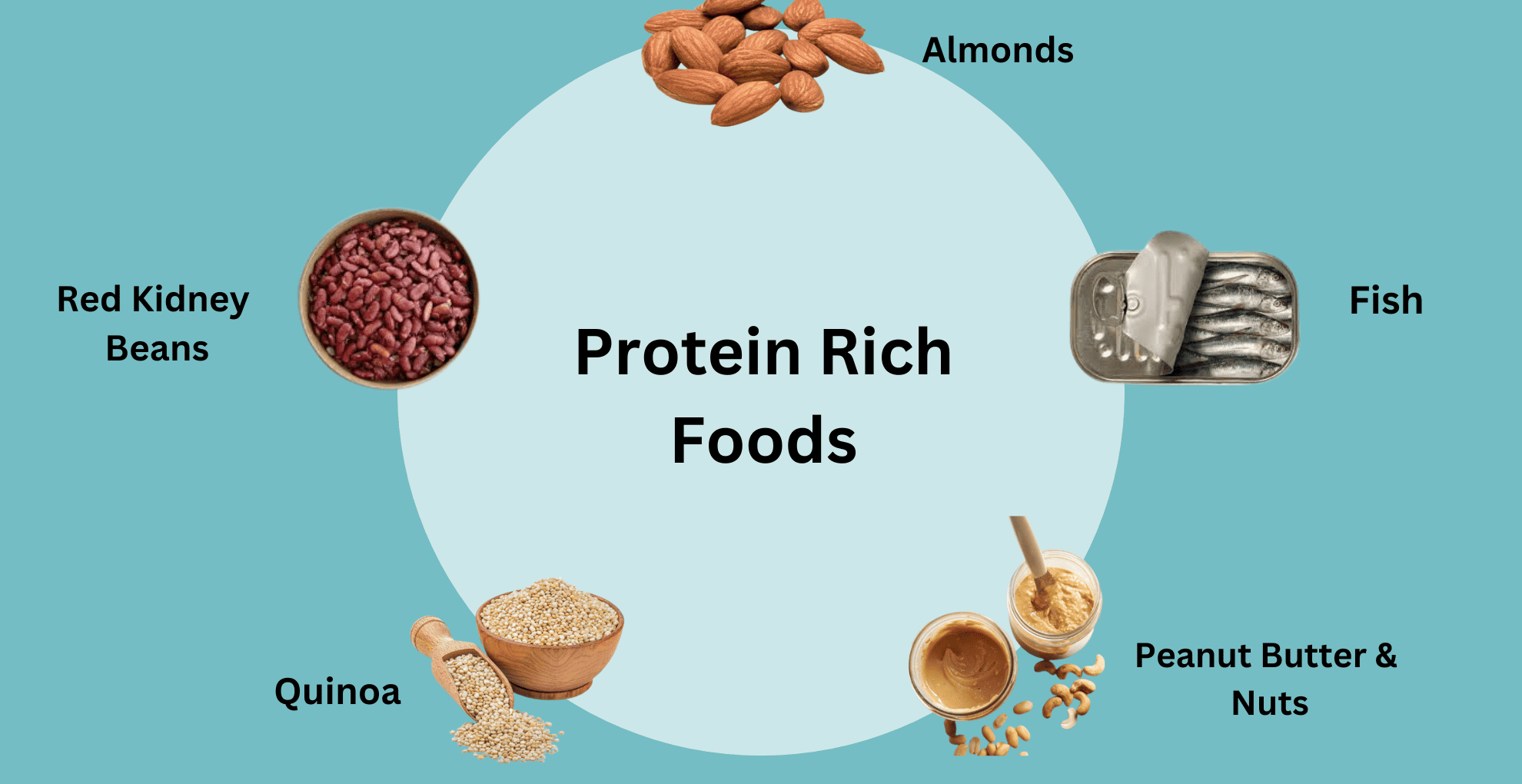By including foods that are high in protein into your diet, you can ensure that your general health and well-being are maintained. However, how much protein do you need, and what are the most effective sources of this macronutrient that is necessary to your body?
Why we need protein
Proteins are the fundamental components of the human body. Bones, cartilage, muscle, blood, skin, enzymes, hormones, and vitamins are all components that they are made up of. It is required for growth and development, as well as for the repair and construction of cells and tissue, such as muscle, and they play a significant part in the activities that occur inside the body, including as the coagulation of blood, the maintenance of fluid balance, and the immunological response.
Amino acids are the building blocks of proteins. It is possible for human bodies to produce some amino acids on their own independently. These are referred to as amino acids that are not necessary. However, our bodies need nine different amino acids, and the only way to get them is by ingesting foods that contain them. These chemical compounds are referred to as essential amino acids, and they are required for the body to operate normally.
What foods are high in protein?

We can get protein from plant or animal sources. Protein in our diet can come from meat, dairy products, nuts, some vegetables, and certain grains and beans.
- In addition to being a fantastic source of high-quality protein, lean meats like chicken, turkey, beef, and pig are also a good provider of essential elements like iron and zinc. Select lean or low-fat meat alternatives, such as lean ground beef, pork loin, or skinless chicken breasts, in order to steer clear of the dangerous saturated fat that is included in these meats.
- Not only are fish such as salmon, tuna, and mackerel abundant in protein, but they also include omega-3 fatty acids, which are helpful for the health of the heart. For seafood selections that have less methylmercury, such as salmon, anchovies, and trout, look for those that are available.
- Dairy products, such as milk, cheese, and yogurt, are abundant in a variety of critical elements, including calcium, protein, and other nutrients. Yogurt made from Greek yogurt is an excellent choice since it has a high amount of protein in addition to other elements like calcium, vitamins, and minerals. Be sure to choose dairy products that are low in saturated fat and reduce the quantity of cheese you consume. Dairy products may contain a significant level of saturated fat.
- Kidney beans, pinto beans, white beans, black beans, lima beans, fava beans, soybeans, chickpeas, black-eyed peas, pigeon peas, split peas, lentils, and edamame are all examples of legumes that fall within the larger category of beans, peas, and lentils. These meals derived from plants are not only rich in protein but also in fiber, folate, potassium, iron, and zinc: they are just fantastic.
- Almonds, hazelnuts, walnuts, peanuts, chia seeds, pumpkin seeds, sunflower seeds, and peanut butter are all examples of nuts and seeds. Another example is peanut butter. Additionally, they are a good source of healthful fats, vitamins, and minerals, in addition to being abundant in protein. Because nuts contain a lot of fat and calories, you should watch how much you eat of them.
- Tofu and tempeh are two examples of soy products that are very beneficial to vegetarians and vegans since they are high in protein content. Tofu has seven grams of protein for every quarter cup when it is consumed.
How much protein should you eat daily?
The quantity of protein that is considered to be the Recommended Dietary Allowance (RDA) for an average adult is 0.8 grams of protein per kilogram of body weight, which is equivalent to 0.36 grams per pound. This is the amount that is required to fulfill your fundamental nutritional needs without causing you to get ill. There are sixty grams of protein that should be consumed on a daily basis by a person who weighs 75 kilograms (165 pounds).
In order to establish the amount of protein that you should consume on a daily basis, you may either use this online calculator or multiply your weight in pounds by 0.36.
You should bear in mind that the amount of protein that you need on a daily basis is not a predetermined amount. Your requirements for protein, for instance, may change based on the amount of physical activity you engage in, as well as whether or not you are pregnant or nursing with your child.
Should I get my protein from animal or plant sources?
Nutritional recommendations now emphasize consuming protein-rich meals rather than specified protein quantities to receive adequate protein in a healthy manner. Consider the whole protein "package" when choosing protein-rich foods, including fats, carbs, vitamins, minerals, sugar, salt, additives, and more.
In addition to high-quality protein, certain meats include undesirable saturated fats and salt. If you consume meat, pick leaner cuts and poultry. Saturated fat-rich meats include:
- fatty cuts of beef, pork, and lamb
- ground beef (75% to 85% lean)
- processed meats such as bologna, salami, sausages, hot dogs, bacon
- some poultry, such as duck.
A high-protein diet that is predominantly made up of red meat or processed meat is a cause for concern. Research has consistently found that both unprocessed and processed red meat are linked to higher risks of cardiovascular disease and diabetes. One meta-analysis found that replacing red meat with healthy plant proteins decreased the risk of cardiovascular disease.
Benefits of a higher protein diet
While most Americans consume more than enough protein, some people may benefit from a higher intake of protein.
To maintain or gain muscle mass
To preserve muscle mass, which decreases with age, you should increase your protein consumption to one gram per kilogram of your body weight if you are above the age of 50. This is the only reason for this recommendation.
If you are aiming to increase your muscle mass, eating a diet that is rich in protein may assist promote the development and repair of your muscles. In the process of exercising, muscle cells are broken down. Nutritional protein assists in the healing of damage, which eventually results in the strengthening of muscles.
To lose weight
The value of high-protein diets for weight loss remains controversial. However, one meta-analysis found that a high-protein diet could lead to weight loss and prevent weight regain after weight loss. The authors note the need for future studies that follow patients for longer than one year for more insight into this issue.

